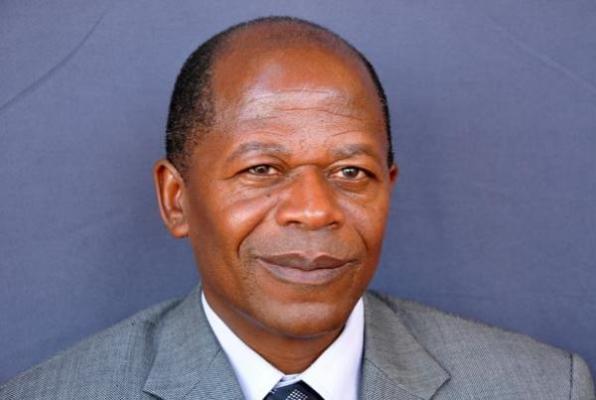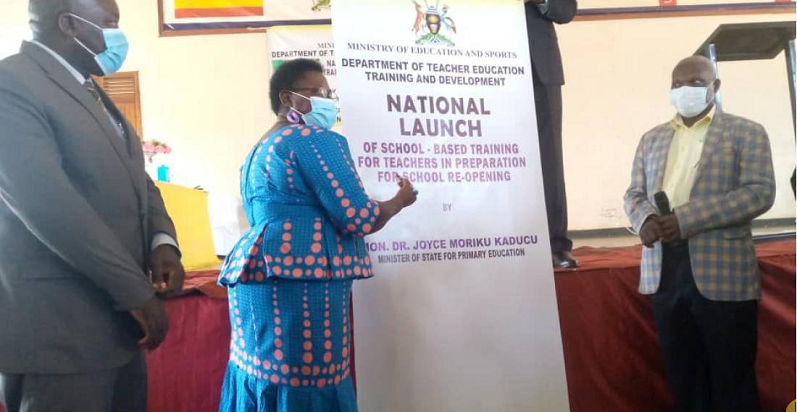A teacher in classroom. Many Kiswahili teachers are jobless/ Courtesy photo
The National Curriculum Development Centre (NCDC) has urged Government to deploy the over 68,000 teachers who graduated in teaching Kiswahili, but these have remained idle due to the failure to fully operationalize the teaching of Kiswahili in both Primary and Secondary schools.
The call was made by Perpetua Arinaitwe, Senior Curriculum Specialist in Charge of Kiswahili at NCDC while appearing before Parliament’s Committee of Gender, Labour and Social Development, to give the Centre’s views on the Uganda National Kiswahili Council Bill 2023.
Arinaitwe informed the Committee that the first grade 3 teacher with Kiswahili as teaching subject graduated in 2014, and if computed from from 2014 to 2022, there are about 68,000 teachers capable of teaching Kiswahili, but these have never practiced the knowledge they acquired because many have never been deployed.
She explained: “We got some information from those examiners and those who mark Primary Teachers College Examinations, that they would mark scripts totaling to 8000-10,000 student teachers. So when you calculate, from 2014 to date, we have over 68,000 teachers who have finished PTC training with Kiswahili as teaching subject and have never practiced in the schools. So we are urging Government to do deployment of those teachers and Kiswahili be implemented in primary schools such that, that knowledge is tapped.”
The National Curriculum Development Centre welcomed the enactment of the Uganda National Kiswahili Council Bill 2023, saying it will be critical at fulfilling Parliament’s constitutional obligation of making Kiswahili as the second national language in Uganda.
“We want to appreciate Government that with the recent Cabinet Directive of 2020, there was a debate here that Article 62 of the constitution which says that Kiswahili shall be the second official language, and shall be used in such circumstances as Parliament by law prescribed. Cabinet directed that Kiswahili should be taught as a compulsory subject from Primary to Secondary and be examined. I want us to take that as a serious note and I think there is nothing beyond that prescription. So I think, Parliament has gone to prescribe that Article 62 of the constitution,” added Arinaitwe.
She however decried the wastage of resources at the Ministry of Education, citing a scenario in 2014, when the Ministry of Education procured 413,456 Kiswahili Text books for all estimated 4.2 million learners for Primary 5 to 7 across the country, yet the same subject hadn’t been rolled out in these same schools where the text books were sent.
“I think you can now see, this is wastage of money. They procured and distributed these materials to schools, but Kiswahili isn’t formally rolled out in those primary schools. Much as in the challenges we express low text book ratio among learners and the current text book for Kiswahili learners is 1:10, which is way below the international recommended ratio of 1:3,” remarked Arinaitwe.





